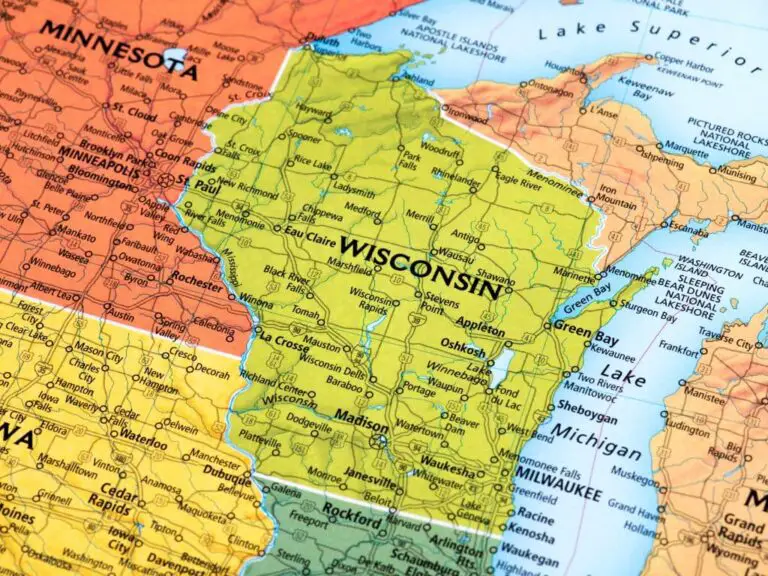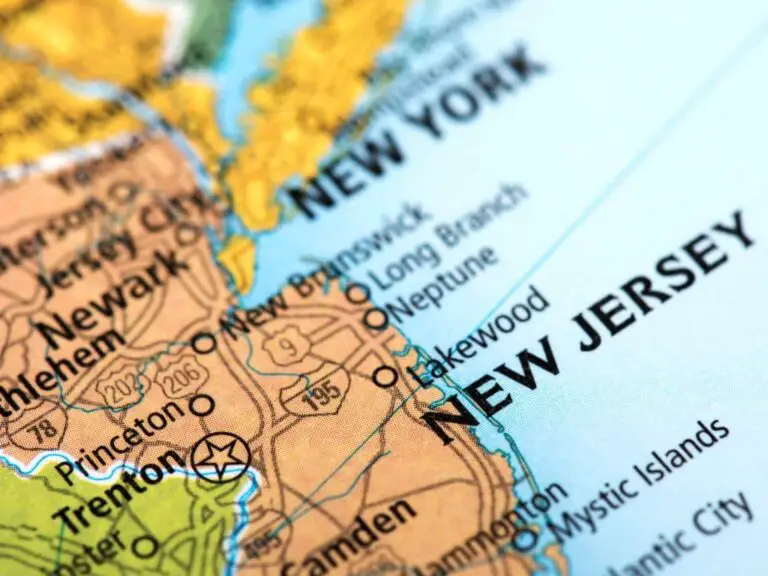What Is Considered Wealthy in Arizona?
In Arizona, individuals are considered wealthy if they are among the top 5% of income earners in the state, requiring an annual income of $195,113 according to GoBankingRates. The general understanding of being wealthy in Arizona, like elsewhere, is not just associated with a sizable income, but also involves having substantial savings, little to no debt, and financial freedom.

Understanding the Concept of Wealth in General Terms
The concept of wealth can be defined in many ways and is often subjective across different cultures and societies. Commonly, wealth is described as an abundance of valuable possessions or resources, measured in terms of things like money, real estate, investments, or other tangible assets.
In personal finance, wealth often signifies financial independence or an amount of assets that can sustain a person’s lifestyle without the need for continuous labor or income. This is distinct from being rich, which often signifies a high level of income but does not necessarily mean the person is free from debts or financial obligations. Further, it’s crucial to note that being “wealthy” can vary significantly depending on cost of living and personal lifestyle choices.
One significant factor in the calculation of wealth is net worth, which is the sum of all assets, including savings, investments, and property, minus all debts. Some financial services advise that wealth can be defined as being able to live comfortably on the withdrawal of around 4% of one’s asset-income per year.
However, the concept of wealth extends beyond financial assets. It can also encompass aspects such as time, knowledge, physical health, and relationships, which are often considered forms of ‘wealth’. For example, an individual could be considered ‘time wealthy’ if they have a lot of free time to devote to activities they enjoy, or ‘knowledge wealthy’ if they possess a significant amount of knowledge or expertise in a particular area.
In modern societies, wealth also has significant implications on lifestyle, social status, and opportunities. It often influences the quality of a person’s living conditions, education, healthcare, and opportunities to travel or invest. As such, wealth accumulation is often seen as a goal and measure of success in many cultures.
The concept of wealth carries different meanings at a societal level. Economic theories often examine the distribution of wealth, as this impacts economic growth, inequality, and societal wellbeing. Standards of wealth can differ greatly across different regions and countries – considering the disparity in cost of living and average income across the globe. In essence, the concept of wealth is a complex and multifaceted one, subject to individual interpretations and societal influences.
What Is Considered Wealthy in Arizona?
Wealth in Arizona can be defined in various ways, often related to the amount of income or net worth an individual possesses. According to Business Insider, Arizona residents need to earn at least $107,120 per year to be classified as “upper income” or “rich,” contrasted with the state’s median annual household income of $35,880 in 2016. However, to be among the top 5% of income earners in Arizona, any individual needs to earn an annual salary of $195,113, based on a study by GoBankingRates.
Recognized “rich” in any given context can vary vastly from one individual to another, and therefore, it’s subjective and depends on personal situation, location, and life goals. Sometimes, being rich refers to having a high income, while being wealthy refers to possessing a significant net worth or long-term financial security.
Some might argue that wealth is living debt-free and comfortably on a low income, while others see wealth as having more capital than they can spend in their lifetime. Wealth can also be evaluated in terms of net worth, with a recent Charles Schwab Modern Wealth Survey suggesting that a net worth of $2.2 million would consider someone wealthy in the United States.
In Arizona specifically, wealth is often benchmarked against the state’s cost of living, with the wage level needed for a comfortable life in Phoenix being relatively low as compared to other cities. Therefore, the perception of wealth in Arizona might be different compared to other states with a higher cost of living.
Salaries and Household Income in Arizona
The average salaries and household income in Arizona vary according to several factors, such as location, age of the householder, and annual income. From the latest available data gathered in 2021, the median household income in Arizona is $65,913, while the average household income is $89,693. This data reflects income across all households in Arizona, whether in urban or rural areas.
Apart from the general income estimate, when the data is analyzed on a zip code level, it reveals variances in earnings across different regions. The wealthiest zip codes in Arizona, according to the mean income, are primarily found in the 852xx area. The highest average income is found in the 85253 zip code, with an average income of approximately $296,706.
Examining the age demographic of householders reveals different income levels. The average income for householders under the age of 25 is $39,880. This figure rises for householders aged 25 to 44 years, where the average income is pegged at $72,443. The most affluent age demographic is those aged between 45 and 64 years, with an average income of $79,030. However, the income decreases for those aged 65 and over, with these householders earning an average of $52,250.
The census data also shows that 7.4% of households in Arizona are categorized as high-income households, meaning they earn over $200,000 annually. The state’s per capita income, which is the average income earned per person in a given area in a specified year, is $34,644.
Cost of Living in Arizona
The average cost of living in Arizona is approximately $44,875 per year according to data from the Bureau of Economic Analysis in 2021. Cost of living factors include housing, health care, food and beverages (non-restaurant), gas and energy goods, and all other personal expenditures.
Housing costs range from an average monthly rent of $973 for a studio apartment to $2169 for a five-bedroom home. The median monthly mortgage cost is $1,545. The typical home value in Arizona as of February 2023 is $409,196.
Health care costs per person per year average at $6,828. Average grocery and food costs in Arizona are around $278.83 per person, per month. Transportation costs can range from $5,316 to $15,073 per year depending on the family structure.
The average utility costs per month in Arizona are $408. Costs for child care can range from $787 to $1,283 per child per month depending on the age of the child. The state of Arizona also charges its residents a flat income tax rate of 2.5%.
Additional costs for leisure activities and miscellaneous expenditures average at $25,457 a year. Therefore, while the cost of living can vary depending on the specific location and lifestyle, it does require a considerable budget to live comfortably in Arizona. More affordable cities in Arizona include Bullhead City, Surprise, and Yuma.
Real Estate Values in Arizona
The average real estate value in Arizona is approximately $420,494. This figure represents a downturn on an annual scale, with the value having declined by 6.5% compared to the past year. The sale-to-list ratio in the market is about 0.990, indicating that homes typically sell for almost the exact listed price.
A significant proportion of properties, 18.9%, are sold over the list price, while a majority, 56.2%, are sold under the list price. The median number of days it takes for a property to switch from being listed on the market to pending status is 21 days. These statistics were recorded through June 30, 2023.
Home values differ considerably across different cities within Arizona. For instance, the Median Zillow Home Value Index (ZHVI) for Pine, Arizona is $468,279, whereas it is $416,932 for Camp Verde, and $423,404 for Payson. Smaller places like Mayer, Star Valley, and Gisela sport median ZHVI figures of $294,490, $499,364, and $207,523 respectively.
Although not always accurate, the Zillow Home Value Index provides these figures by measuring changes in property-level Zestimates on a monthly basis, giving an idea of the current level and trend of home values across various geographies and types of housing in Arizona. This data helps inform investors, homeowners, and potential buyers about the current dynamics in the housing market and support the decision-making process.
Who Is the Richest Person in Arizona?
Mat Ishbia is currently the richest person in Arizona, with a net worth of approximately $5.4 billion. He is recognized as the new owner of both the Phoenix Suns and Mercury sports teams. According to Forbes’ annual list of global billionaires, Ishbia ranks as the 486th richest person in the world. This list also reveals that Arizona is home to 12 individuals categorized as billionaires, cumulatively worth $36.3 billion. Their joint net worth remained consistent with the previous year’s total.
What Is Considered Low Income in Arizona
In Arizona, a senior household is considered low income if it earns less than 80% of the median annual income for its size. In 2021, the U.S. Census identified the median annual household income as $65,913. This means a senior household is categorized as low income if it earns less than $52,730.40 annually, or less than $4,394.20 monthly. A single senior would be considered low-income with an annual income of less than $27,715.20, or less than $2,309.60 monthly.
This determination is used to establish eligibility for federal and state assistance programs designed to cover living expenses and long-term care, including home health care, for seniors. However, these benefits are often restricted to very low-income households as defined by the U.S. Department of Housing and Urban Development (HUD) as earning less than 50% of the area’s median income. A very low income for a senior household in Arizona is defined as less than $32,956.5 annually, or less than $17,322 annually for single seniors.
To provide assistance to eligible low-income seniors, Arizona offers several programs. The Arizona Health Care Cost Containment System (AHCCCS) is the state’s Medicaid program providing comprehensive health care to households whose gross monthly income falls under the limit of $1,215 for a single applicant or $1,644 for a two-person household as of February 2023. AHCCCS also offers the Arizona Long-Term Care System (ALTCS) for seniors who require a nursing facility level of care.
Other assistance programs in Arizona offer help with food, housing, and living expenses. The state’s Supplemental Nutrition Assistance Program (SNAP), Nutrition Assistance, provides monthly food benefits. Housing assistance is offered through partnerships between HUD and Public Housing Agencies, providing rental assistance and subsidized apartments to qualifying households. Seniors can also get cash assistance for living expenses through Supplemental Security Income (SSI) benefits independent of Social Security benefits. Eligibility for SSI requires the individual to either have a disability or be over 65 with low income and limited resources.
What Is Considered Upper Class in Arizona?
The definition of “upper class” can vary depending on source and context, but often refers to individuals or households that earn significantly above the median income. Considering the study analyzed by SmartAsset using 2021 U.S Census Bureau data, the upper class in Arizona would be those earning more than double the median household income. Specific numbers would depend on the individual city. For example:
- In Gilbert, where the median household income is $104,802, an upper-class income would start from anything above $209,604.
- In Scottsdale, with a median household income of $99,097, an income above $198,194 would be considered upper class.
- In Chandler, households earning in excess of $189,226, which is double that city’s median income of $94,613, would be in the upper-class bracket.
It should be noted that these figures are estimations, and variations might occur based on the specific costs and standard of living in various Arizona cities. However, in general, incomes significantly exceeding double the median household income in a given area would usually be regarded as upper class.
Where Do the Wealthy Live in Arizona?
The wealthiest individuals in Arizona predominantly reside in specific zip codes, primarily in the Scottsdale, Phoenix, and Paradise Valley areas according to the most recent U.S. Census Bureau data for 2021. This data, which focuses on zip codes with a population of at least 500 residents and a reasonable margin of error, highlights these wealthy residential clusters by mean income.
The top zip code for mean income in Arizona is 85253, located in Paradise Valley, with a mean annual income of $296,706. This registered the highest wealth concentration in the state of Arizona. Famed for its luxury golf courses, shopping, and real estate, Paradise Valley stands out for having the wealthiest inhabitants in Arizona.
The next richest area is the zip code 85262 in Scottsdale, with a mean income of $232,862. Similar to Paradise Valley, Scottsdale is known for its upscale living and has the second-highest concentration of wealth in the state.
The third wealthiest zip code is the 85255, also located in Scottsdale, with an average annual income of $194,998. Another Scottsdale area, 85266 ranks fourth with a mean income of $192,209. The fifth highest mean income, seeing the trend shift towards Phoenix, is in 85259, also a part of Scottsdale, with a mean income of $172,227.
Zip code 85045 in Phoenix ranks sixth with a mean income of $165,188, followed by Carefree’s 85377 with a mean income of $163,277. Completing the top ten list are Tempe’s 85284, with a mean income of $161,009, Northern Phoenix’s 85083, with a mean income of $158,811, and Chandler’s 85249, with a mean income of $158,555.
This data illustrates the concentration of wealth in Arizona, largely centralized in Paradise Valley, Scottsdale, Phoenix, with Carefree, Tempe and Chandler also making an appearance in the top list.
Frequently Asked Questions
-
What is considered wealthy in Arizona?
The options ranged between $100,000 and $10 million. GoBankingRates considers “rich” to be someone who is among the top five percent of income earners for each state. A quarter (26.2%) of the respondents believe that $1 million is necessary to become rich. Arizona had the exact same results.
-
What is the maximum income to qualify for food stamps?
The household’s gross monthly income, which is the income after all the deductions taken by the program, must not exceed 130 percent below the poverty level. A family with three members will receive SNAP benefits at $1,830 per month.
-
How much does it cost to live in a retirement community in Arizona?
Independent living costs seniors $3,750 per monthly on average. Prices typically range from $1,500 to $6,000 According to WhereYouLiveMatters, costs will vary depending on the quality and location of each facility.
-
How can I get section 8 immediately in Arizona?
Housing Choice Vouchers and Public Housing (Section 8). To get either of these types of assistance, you can visit your nearest Public Housing Agency (PHA). You may be able to submit multiple applications at one PHA, as some PHAs have lengthy waiting lists. A list of places where your voucher is accepted can also be provided by the PHA.
-
How much does independent living cost in Arizona?
Cost of Independent Living in Arizona The monthly average cost of living independently is $2,382 This is more than the $1,729 monthly national average.
-
How old is a senior citizen in Arizona?
Arizona resident 65 and over: Current health condition
-
How much does memory care cost in Arizona?
Arizona Memory Care Costs The average cost of memory care is $5,625. It is one of the most affordable states, compared with the $5,625 national average cost. The prices in New Mexico are almost equal to that of the national average at $5,623 per monthly.
-
How much is a welfare check in Arizona?
The monthly amounts available to those who have no shelter cost liabilities ranged between $103 per person and $283 for six families. Electronic benefits are provided electronically by the state through a card that is similar to an ATM or debit card. The card can be used at cash machines and stores by the recipient.
-
What is the poorest city in Arizona?
Quartzite is Arizona’s poorest municipality. Quartzite has a median household income of $20,979 and a mean household income of $37,318. Red Rock, in Apache County (the poorest of the cities), had no minimum household size.
-
What is the average cost of a nursing home in Phoenix Arizona?
Phoenix’s average monthly nursing home cost is $5,917, which is significantly lower than the $8,121 national average.
-
How do I get low income housing in Phoenix?
Visit your nearest Public Housing Agency to apply for any type of assistance. You may be able to submit multiple applications at one PHA, as some PHAs have lengthy waiting lists. A list of places where your voucher is accepted can be provided by your PHA.
-
Why do I keep getting calls from senior benefits?
How do Medical Alert Robocalls work? These calls may seem familiar to adults, but seniors can be a little skeptical. According to The Senior List, these robocalls imply that seniors could receive a free personal medical alarm system.
-
How much does assisted living cost in Phoenix?
According to Caring.com, Assisted Living Costs in Phoenix, AZ According to Caring.com, an average cost for assisted living in Phoenix is $2880 per month and $34,560 annually. Prices can fluctuate as every facility has different amenities and floorplans. Find out more information about the costs of Phoenix assisted living.
-
What does it really cost to live in the villages?
Ryan Erisman is the author of The Villages Florida Book. He says that the number one question people are asking about the area is “Can I afford it?” It costs $1,039 per month to live in the Village, which is well within most couples’ means, including those who are heavily dependent on Social Security.
-
Is Tempe Section 8 waiting list open?
All applications are now closed. Housing Choice Voucher applications were open from Aug. 16-22, 2021.






